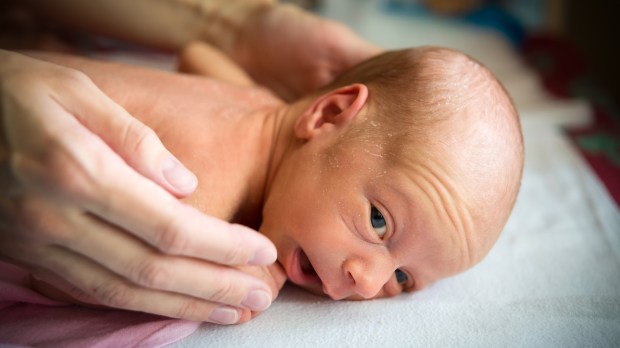It might be “ethically permissible” to try to create babies that have genetic material from three people, the National Academies of Sciences, Engineering and Medicine has concluded. But there would be many conditions that would need to be met first.
A 12-member panel from the NASEM released a 164-page report Wednesday outlining a plan for how scientists could ethically pursue the research, according to National Public Radio.
Scientists would have to perform extensive preliminary research in the laboratory and with animals to try to make sure it is safe before proceeding with such experiments, the report said. If it were, researchers should try to make only male babies at first, because they would be incapable of passing their unusual amalgamation of DNA on to future generations.
“Minimizing risk to future children should be of highest priority,” the committee writes.
NPR reported:
The report was requested by the Food and Drug Administration in response to applications by two groups of scientists in New York and Oregon to conduct the experiments. Their goal is to help women have healthy babies even though they come from families plagued by genetic disorders.
But the FDA issued a statement after the report’s release raising questions about whether the agency would permit the research to move forward. It noted that federal law “prevents the FDA from using funds to review applications in which a human embryo is intentionally created or modified to include” changes that could be passed down to future generations. As a result, the email says, any such research “cannot be performed in the United States.”
Researchers pursuing permission for the experiments include Mark Sauer, a professor of obstetrics and gynecology at Columbia University. The goal of the research is to help women carrying diseases known as mitochondrial disorders, which are only passed down by women through defects in the genetic material in their eggs, NPR explained. Specifically, the defects are in a type of genetic material known as mitochondrial DNA.
Unlike the DNA that most people are familiar with — the 23 pairs of human chromosomes that program most of our body processes and traits — mitochondrial DNA consists of just 37 genes inside mitochondria, which are structures inside cells that provide their energy. Mitochondrial disorders range from mild to severe. In many cases there is no treatment, and the affected child dies early in life after suffering progressive, debilitating symptoms. In the experiments, scientists would take eggs from women carrying defective mitochondrial DNA, remove all the genes except for the mitochondrial DNA and then do the same thing to eggs that have been donated by women with healthy genes. The DNA of the woman who wants to have the healthy child would be transferred into that egg, which would then be fertilized in the laboratory with sperm and implanted in her womb to develop. The British government recently approved such experiments in that country.
Critics fear that if experiments are allowed to go forward, they could accidentally introduce errors into the human gene pool that could create new diseases. They also worry it would set a precedent that could open the door to creating designer babies, in which parents can pick and choose the traits of their children.
Just a year ago, as the House of Commons voted to approve the research, Bishop John Sherrington of the U.K. Bishops’ Conference Department for Christian Responsibility and Citizenship commented, “This about a human life with potential, arising from a father and a mother, being used as disposable material. The human embryo is a new human life with potential; it should be respected and protected from the moment of conception and not used as disposable material.”

